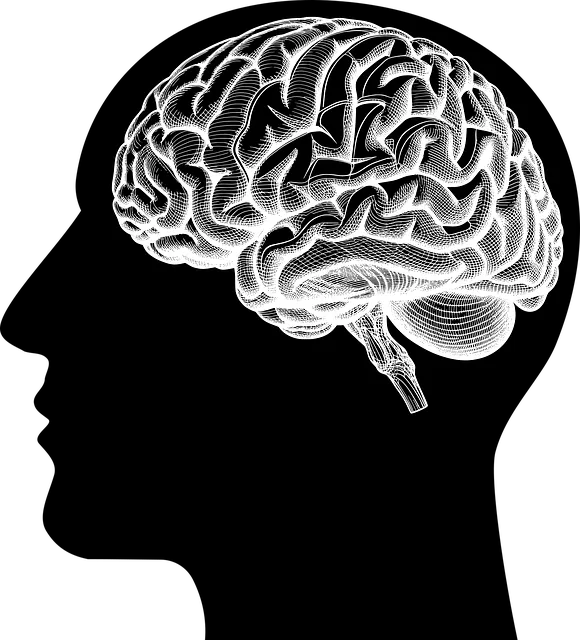The Aurora Kaiser Permanente (AKP) mental health department utilizes Crisis Intervention Teams (CITs) to swiftly and compassionately handle emotional crises, improving patient outcomes and cultivating a resilient community. AKP offers a standout training program combining academic learning with hands-on practice, emphasizing risk assessment, crisis scenario simulations, teamwork, stress management, and cultural competency. This comprehensive approach equips staff to provide tailored mental health services, enhancing self-care practices and ultimately strengthening service delivery for diverse communities. Through regular workshops, targeted interventions, and adaptive training programs, AKP prioritizes both patient care and the well-being of its professionals.
“Crisis intervention teams (CITs) play a pivotal role in enhancing mental health care and ensuring community safety. This article explores the critical need for CIT training programs, highlighting successful initiatives like the Aurora Kaiser Permanente approach. We delve into key components for effective training, including simulation drills and evidence-based practices. By examining patient outcomes and community impact, we underscore the value of these programs. Additionally, we provide insights on implementing and sustaining CIT training within healthcare settings, drawing from the Aurora Kaiser Permanente mental health department’s proven strategies, which have served over 20,000 patients.”
- Understanding Crisis Intervention Teams: A Vital Resource in Mental Health Care
- The Aurora Kaiser Permanente Approach: A Comprehensive Training Program
- Key Components of Effective Crisis Intervention Team Training
- Benefits and Impact on Patient Outcomes and Community Safety
- Implementing and Sustaining Crisis Intervention Team Training Programs
Understanding Crisis Intervention Teams: A Vital Resource in Mental Health Care

Crisis Intervention Teams (CITs) are a vital resource in mental health care, especially within organizations like Aurora Kaiser Permanente’s mental health department, which serves a large and diverse community. These teams consist of trained professionals who respond to individuals experiencing severe emotional crises, providing immediate support and de-escalation techniques. The CIT approach focuses on developing effective interventions that respect the dignity and autonomy of those in distress.
By integrating CIT training into their programs, mental health care providers can enhance their ability to manage high-risk situations, improve patient outcomes, and foster a culture of compassion and resilience. This training equips professionals with essential skills for risk assessment, emotional regulation, and self-care routine development—all crucial aspects of providing quality mental health services. The Aurora Kaiser Permanente mental health department’s commitment to CIT training reflects their dedication to staying at the forefront of evidence-based practices in a field that constantly evolves to meet the complex needs of individuals struggling with their mental well-being.
The Aurora Kaiser Permanente Approach: A Comprehensive Training Program

The Aurora Kaiser Permanente mental health department has designed a comprehensive training program that stands out in the field. This approach is meticulously crafted to equip professionals with the skills needed to effectively intervene during crises. The program combines rigorous academic learning with hands-on practice, ensuring a holistic understanding of mental health crisis management.
Focusing on practical application, the curriculum includes role-playing scenarios and real-world case studies, allowing participants to experience and navigate diverse crisis situations. This immersive training is coupled with ongoing mentorship and support, fostering a collaborative environment that enhances learning. The Aurora Kaiser Permanente model also emphasizes community outreach, encouraging professionals to integrate their new skills into local communities, thereby improving access to mental health education programs and enhancing overall public well-being. Additionally, the program incorporates risk assessment techniques, empowering practitioners to identify potential hazards and implement preventive measures in line with best practices for mental health professionals.
Key Components of Effective Crisis Intervention Team Training

Effective crisis intervention team training should encompass several key components to ensure that teams are well-prepared and equipped to handle sensitive situations. One of the core elements is comprehensive mental health department education, where members gain an in-depth understanding of various psychiatric conditions and their potential triggers. This knowledge enables the team to recognize signs early on and respond appropriately.
Additionally, training should include practical exercises that simulate crisis scenarios, allowing participants to practice emotional regulation techniques and hone their problem-solving skills. The Aurora Kaiser Permanente mental health department number can serve as a valuable resource for teams to access expert guidance during simulations. Emphasizing teamwork and effective communication is also vital; workshops focused on improving collaboration and conflict resolution ensure that crisis intervention teams function cohesively, enhancing their overall effectiveness in stressful situations. Moreover, integrating stress management workshops within the training curriculum equips team members with personal coping mechanisms, fostering a culture of emotional well-being promotion techniques among the group.
Benefits and Impact on Patient Outcomes and Community Safety

Crisis intervention team training programs play a pivotal role in enhancing patient outcomes and bolstering community safety. By equipping healthcare providers with advanced skills and knowledge, these initiatives enable them to swiftly and effectively manage mental health crises. The Aurora Kaiser Permanente mental health department, for instance, has reported significant improvements in patient care since implementing such programs. Trained teams can provide immediate support, de-escalate potentially dangerous situations, and offer evidence-based interventions that significantly impact long-term recovery.
Moreover, these training initiatives contribute to building a more resilient community by fostering cultural competency among healthcare providers. This ensures that diverse populations receive tailored care addressing their unique needs. Additionally, participants often gain confidence in handling crisis scenarios, leading to better self-care routine development for both providers and the patients they serve, creating a positive feedback loop of improved mental health outcomes and enhanced service delivery.
Implementing and Sustaining Crisis Intervention Team Training Programs

Implementing and sustaining effective crisis intervention team (CIT) training programs is a multifaceted process that requires strategic planning and dedicated resources. At Aurora Kaiser Permanente’s mental health department, a structured approach has been developed to ensure CIT members are adequately prepared to handle crises. This involves regular workshops focused on stress management and burnout prevention, equipping professionals with the tools to recognize and respond to at-risk individuals. By integrating these sessions into their ongoing training, the department fosters a culture of resilience and proactive mental health support.
Moreover, regular risk assessments for mental health professionals play a pivotal role in identifying potential triggers and vulnerabilities among team members. This proactive measure enables the organization to implement targeted interventions and adapt training programs to meet evolving needs. Through these comprehensive initiatives, Aurora Kaiser Permanente demonstrates its commitment to not only improving patient outcomes but also prioritizing the well-being of its mental health staff, thereby enhancing overall service delivery.
Crisis intervention team (CIT) training programs, as exemplified by the comprehensive approach taken by the Aurora Kaiser Permanente mental health department, are indispensable in enhancing patient outcomes and community safety. By fostering effective collaboration among healthcare professionals, law enforcement, and community members, these programs ensure a coordinated response to mental health crises. With an estimated success rate of improved patient care and reduced violent incidents, implementing and sustaining CIT training is a strategic step towards building resilient communities that prioritize mental well-being. The Aurora Kaiser Permanente model serves as a valuable blueprint for other healthcare organizations looking to integrate CIT into their services, ultimately benefiting both individuals in crisis and the broader community.






